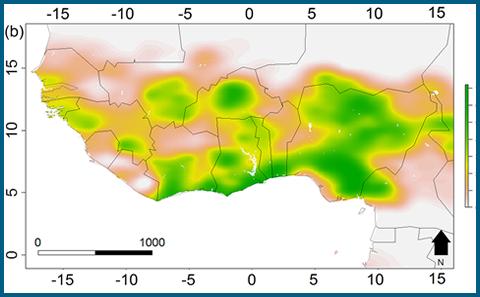Predicting global emergence and spread of zoonotic diseases Event

- Time:
- 13:00 - 14:00
- Date:
- 16 May 2018
- Venue:
- Nuffield Theatre, Building 6, Room 1081
For more information regarding this event, please telephone Selina Barry on 24794 or email S.J.Barry@soton.ac.uk .
Event details
Biological Sciences Seminar Series Programme 2016 - 2017
Abstract: Human infectious diseases are a significant threat to global human health and economies (e.g. Ebola, SARs), with the majority of infectious diseases having an animal source (zoonotic). Despite their importance, the lack of a quantitative predictive framework hampers our understanding of how spillovers of zoonotic infectious diseases into the human population will be impacted by global environmental stressors. Although empirical statistical analyses of human infectious diseases has been successful in understanding the spatial environmental correlates of initial outbreaks, a mechanistic understanding of these patterns is lacking at a global scale. Here I present some latest research attempting to merge both empirical and mechanistic approaches at a global scale using data from a poorly understood disease, Lassa fever. I show that macro-scale environmental conditions play an important role in driving the spatial extent of Lassa virus and that any future habitat change to agricultural systems may facilitate a range expansion. I also expand this approach to model zoonotic diseases more generally and examine the impact of future environmental and habitat change on the emergence and spread of zoonotic diseases.
Speaker information
Professor Kate Jones,University College London,is Professor of Ecology and Biodiversity, Director of the Biodiversity Modelling Research Group in the Centre for Biodiversity and Environmental Research (CBER), within the Research Department of Genetics, Evolution and Environment (GEE) at University College London.